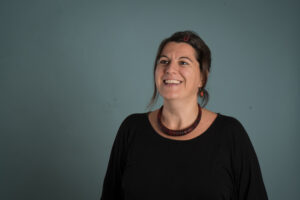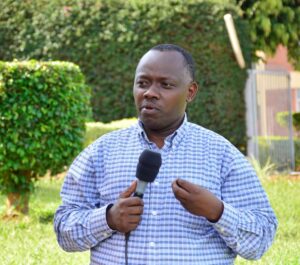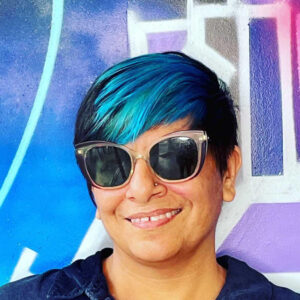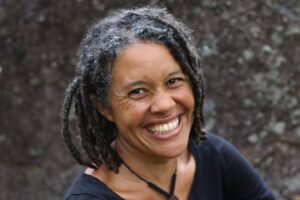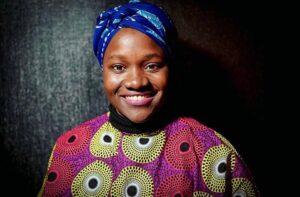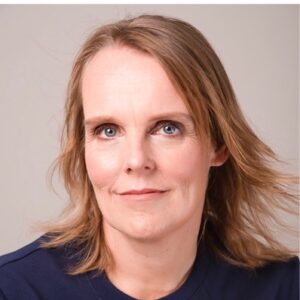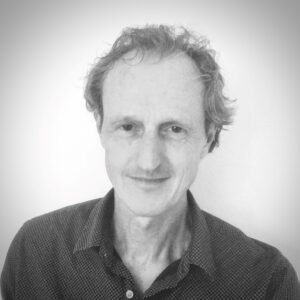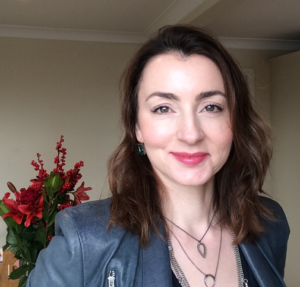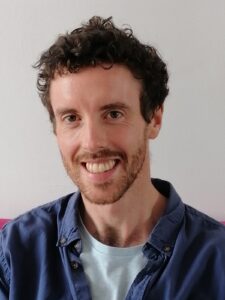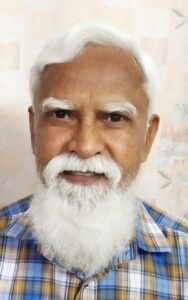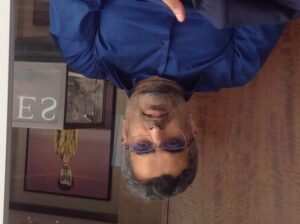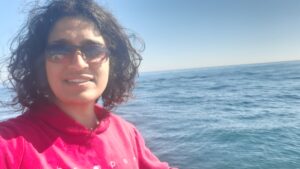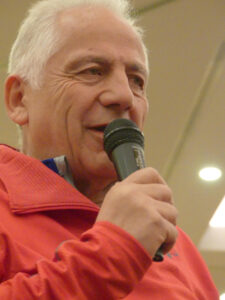Facilitating Our Future Series: Meet the presenters
Hosted by Arlene Audergon, co-founder and director of CFOR
(Read more about Arlene here.)
October 4 2021: Neus Andreu Monsech
Catalonia and Spain – Processing the polarisations of history, from colonialism, to Franco, to modern day
I’m a group facilitator, trainer and organizational consultant. My passion is to support organizations, communities, groups and people at times of change or crisis. One of the issues that worries me a lot is how the unprocessed collective traumatic history organizes the present and blocks the creation of a less violent future. That’s why I have been supporting groups, communities and people (and myself), in accountability and reparation processes connected with history and gender.
October 11: Innocent Musore
Rwanda and the Great Lakes – the 1994 genocide against Tutsi, and processes of reconciliation
Innocent Musore, the Founder and the Executive Director of GER, Peacebuilding activist in Rwanda and the region; with 10 years’ experience supporting the process of reconciliation and peace building in the region. He has been facilitating interactions, trainings and advocacy workshops to support existing reconciliation process, community recovery and the prevention of violence in Rwanda.
His activities engaged the healing of the post-genocide society and fighting the existing effects of the 1994 genocide against the Tutsi. He is interested in improving people’s relations and lives through development activities.
He will share the contribution of GER and CFOR to the reconciliation activities in Rwanda and highlight the existing conflicts situation in the region specifically Eastern DRC.
Innocent Musore holds a Bachelors Degree of Community Development and a Professional Certificate in Leadership and Facilitation: Community and Conflict Transformation issued by Process Work and CFOR.
October 25: Raggi Kotak and Sheila Menon
History and legacy of UK colonialism in relation to issues of racism, asylum and migration
Raggi is a Queer South Asian woman living in London. She is the Director of JEDI Consultancy (JEDI – Justice, Equity, Diversity and Inclusion – www.jediconsultancy.com). She specialises in supporting individuals, teams and organisations to challenge the dynamics of racism.
Raggi is also a human rights barrister and has represented asylum seekers for more than 20 years. As a lawyer, she has specialised in working around the intersections of race, gender and mental health.
Raggi is a self-guided diploma student of Process Work. She trains as a Process Oriented Coach. She also studies for an MA in Culture, Diaspora and Ethnicity at Birkbeck, University of London.
Sheila Menon is an activist campaigner and facilitator who’s been involved in a range of grassroots movements fighting for social and environmental justice. After getting quite burnt out by this work about 5 years ago she started training in leadership and facilitation with the CFOR Process Work school in the UK, and has since turned her attention to providing training/workshops around the broad themes of anti-oppression, power & privilege, wellbeing and self care. She’s particularly interested in the subject of dismantling systemic/structural inequalities and oppressions that are all too often replicated within activist spaces, including the need to decolonise the global north climate movement. She’s also interested in exploring how these dynamics contribute significantly to burn-out, and the importance of collective care & self care in creating a long term regenerative culture.
Sheila is a British born South Asian, but has recently relocated to Brittany (NW France) where she is co-creating a new intentional community collective, and trying to establish creative and empowering projects to connect and support the local communities of undocumented refugees / people sans papiers.
November 8: Maaiane Knuth, Mvuselelo Huni and Undine Whande
Zimbabwe – Processing history, and the fabric of community
Maaianne is an experienced facilitator and designer of group learning and co-creation processes. She is passionate about supporting people in coming together in more authentic and life-affirming ways. Maaianne’s story bridges Europe and Africa in an arc that travels from Copenhagen, where she studied international business, to Zimbabwe, where she co-founded Kufunda. Her work in hosting creative and generative processes, including conscious dance, mindfulness, and time in nature supports individuals in waking to who they are and what they can be within their communities.
She is a founding partner of Gateway Zimbabwe, a co-creation of Kufunda, ORAP and Trust Africa with a purpose to catalyze agency, enhance social cohesion, build healthy communities and contribute to reweaving the social fabric of Zimbabwe.
She was also founding partners of Reos Partners (www.reospartners.com), and Pioneers of Change. She holds a masters degree in international business and finance from the business school of Copenhagen, during which time she served as president AIESEC International (www.aiesec.net), a global student organisation of 50,000 students.
Mvuselelo Huni is the Chief Executive Officer of the Organisation of Rural Associations for Progress (ORAP), a Zimbabwean grassroots movement for development. She is passionate about community development, especially women and youth empowerment, and exploring new ways of working that allow people to grow in their wholeness. She is always thirsty to learn new approaches and to meet new people.
I am a peacebuilder at heart. Most of my life I have worked in various conflict resolution and social justice initiatives in Southern Africa. In the search for what enables non-violence and grows peace, my journey has led me increasingly into the domain of personal transformation and leadership development.
I now work as a coach and systems constellations facilitator accompanying individuals and organisations that seek to evolve their potential for healing and transformation.
November 22: Paul Callery, Paula Boyle, Padraig Cotter
Ireland, England, and Northern Ireland
I was born and grew up in Ireland, though most of my adult life I’ve been based outside Ireland. I spent many years living in the Basque Country (Spain) working in education and language support (with a focus on socio-cultural awareness). Currently I live in London, dividing my time between being as a foster carer for unaccompanied asylum seeking minors, ongoing collaboration with Basque organisations and my Process Work studies.
As a young adult I started to become aware of how my Irishness places me in the world. Living in London again, I’ve been consistently surprised at how a particular sense of being Irish comes alive in me, immediately affecting my sense of self.
I’m very curious about how the many and varied experiences of being Irish shows up in our current everyday lives and look forward to exploring this and more together during the series.
Paula has translated the insights and experience of facing trauma and addiction in her own life into impactful ways of changing from the inside out. She has spent the last 20 years teaching & coaching senior leaders of global companies to do just that.
She has observed, coached and given immediately actionable feedback to hundreds of leaders and teams globally, taught leadership skills in over 25 countries and encouraged audiences large and small to bring more love & authenticity to how they lead and live.
She knows what it takes to truly change and loves partnering with those who are willing to take themselves on and create a future that speaks to their heart.
Northern Irish by birth, she has a deep interest in how we approach conflict, resolve difference, and grapple with the legacy of trauma.
Dr Pádraig Cotter BA. MSc. D Psych Sc.
Pádraig is a Clinical Psychologist in the National Health Service (NHS) in England and a Phase II Process Oriented Psychology (POP) student, at the Research Society of Process Oriented Psychology United Kingdom (RSPOPUK). He has worked at the National Suicide Research Foundation in Ireland and in the fields of Adult Mental Health and Clinical Health Psychology in both Ireland and England. Pádraig has an evolving interest in how POP views the presence of social, political, and economic issues in individual psychotherapy and individual psychotherapy within the processing of world issues. Given his upbringing west of the Irish sea and current life east of it, one of the areas that has received a lot of his thinking in recent years is the complex relationship between Ireland and England and how this arises at an individual, systemic and societal level today.
December 6 – Jay Revar, Anup Karia and Shilpa Shah
Caste in India and the Diaspora community
Jay M. Revar (M.Phil.), is from India, who has worked as Assistant Professor of Clinical Psychology in Government Medical College (Gujarat, India) and presently freelancer psychotherapist; and applies Process Oriented Psychology in practice and in personal life for about three decades. To learn and teach are his passion.
Jay has compiled “Glossary of Process Work Terms” as defined by Arnold Mindell (the founder of Process Oriented Psychology) & Amy Mindell, from their 27 books published till June 2021. The Glossary is available free of cost on Arny’s website. Jay has published research papers on Mental Health and Process Work concept. He has also written articles on ‘Indian Caste System’, ‘British Colonialism’; and presently writing articles on ‘Hindu-Muslim relationships’, ‘Female Gender in India’.
Anup Karia is a facilitator, supporting individuals, groups and organisations to discover their wholeness, creativity and community.
He is a co-director and senior faculty member of ProcessworkUK and co-founder of Asta Facilitation.
Over the years, his work has been quite wide ranging including developing psychosocial and community based interventions for recently arrived refugees and people seeking asylum presenting with severe war trauma to pioneering one of the first psychological support services exclusively for gay men of colour in London. He teaches processwork internationally and consults with organisations around leadership, conflict facilitation and change.
He comes from a hindu background, profoundly shaped by the experience of living in diaspora. He is striving to take responsibility around Caste supremacy and oppression and its horrific impact on communities in India and in the diaspora and the urgent need for awareness and structural change.
Shilpa Shah was born in the UK, the daughter of Kenyan Gujarati parents. She remembers challenging caste discrimination in her wider family from the age of 7. With a background in community development and movement building, she is now a facilitator, coach, writer and a teacher of deep rest meditation. Shilpa learnt her community development skills by organising health and youth empowerment initiatives alongside ‘lower’ caste folks in Gujarat in her early 20s. She has been working since then to heal from internalised racism, casteism, sexism and other internalised systems of oppression and separation and works to help others become free of them too. She is particularly interested in the Gujarati experience both in India and the diaspora – Gujarat, a state which produced activists like Mahatma Gandhi and Jayaben Desai and the likes of Narendra Modi and Priti Patel.
